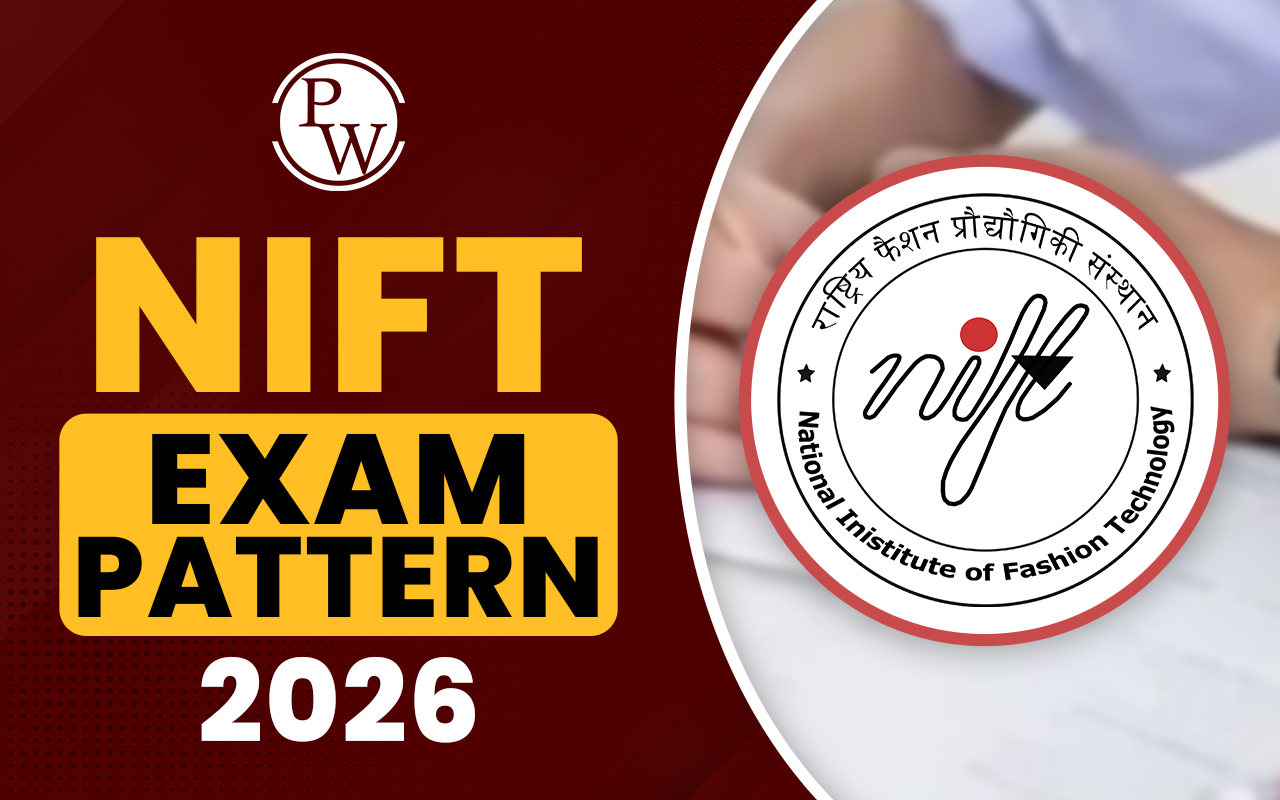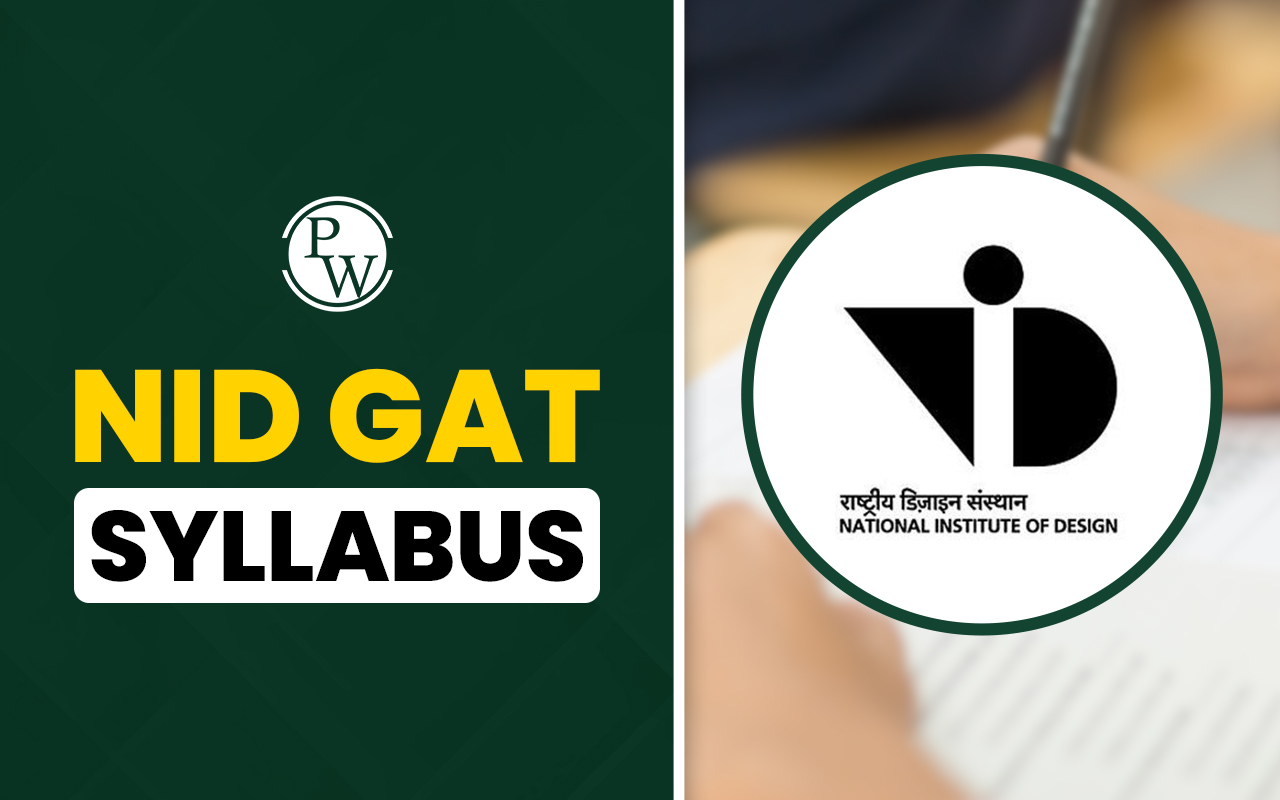
Textile Design Syllabus 2024-25: Textile Design explores different fashion styles with creativity to create unique clothes and accessories. It's shaped by social and cultural trends and offers careers in garment making, fashion, and home décor. You can study Textile Design at various levels like Diploma, Bachelor's, Master's, and even doctoral degrees, depending on your qualifications. Many students choose this course for its broad career opportunities as the industry grows quickly.
A Bachelor's degree in Textile Design teaches patterns, fabric textures, and how textiles are used in home furnishings. A Master's degree focuses on advanced techniques like design, painting, and research to boost creativity in the field. Architecture Creator 2025 BatchTextile Design Syllabus
In Textile Design courses, students learn about materials and how to use design elements and principles. They also study basic garment construction, which includes stitching, knitting, pleating, seaming, gathering, and finishing. The curriculum includes both essential and optional subjects that cover theoretical knowledge. Hands-on experience in Textile Design labs helps students put their ideas into practice. This course is ideal for those interested in textiles and fashion, providing them with the skills they need to succeed in these fields. Also check : Textile Design CoursesTextile Design Syllabus 2024-25 Overview
The Textile Design course syllabus involves the creation of designs tailored for fabrics and textiles used in a wide array of applications. This curriculum empowers aspiring textile designers to channel their creativity while developing a deep understanding of materials and design principles that elevate ordinary textiles into visually captivating works. Key subjects within Textile Design encompass foundational areas like textile introduction, yarn fundamentals, textile materials, fabric design, and advanced drawing techniques. Spanning certificate, diploma, bachelor's, and master's levels, the course equips students to enter diverse industries such as fashion, home furnishings, jewelry, and textiles. By engaging in this program, students enhance their aesthetic sensibilities and unlock myriad opportunities across the expansive field of textile design.| Textile Design Syllabus 2024-25 Overview | |
| Particulars | Details |
| Course Name | Textile Design |
| Course Level | UG, PG, Certificate, Diploma |
| Modes of Study | Regular, Part-time, Full-time, Online |
| Semester UG | 6 Sem |
| Semester PG | 4 Sem |
| Top Colleges | Amity University, Pearl Academy, Asian Academy of Film and Television, NIFT, etc. |
| Entrance Exams | NIFT, NID, Pearl Academy Entrance Exam, CEED, IIAD Entrance Exam, WUD Entrance Exam, etc. |
Textile Design Scope in India
Textile Design offers significant opportunities for students in India as the country's population and textile industry purchasing power continue to expand. A thriving handloom, crafts, and manufacturing sector promises lucrative salaries for designers. NIFT's Textile Design program provides diverse career paths in India's fashion industry, including roles in export houses, mills, buying agencies, and handloom cooperatives. Students gain hands-on experience with innovative materials, learn historical and cultural contexts influencing modern design, and master specialized software for digital and unconventional design approaches. At MJRP University, the Textile Design course equips students with in-depth knowledge of fabric types for garments and accessories, focuses on surface and structural design, and covers technical aspects like material properties, production techniques, and dyeing processes in the industry.Textile Design Subjects
The Textile Design subjects explore colors, textures, patterns, and structures to create both beautiful and practical clothing materials. These subjects provide students with the essential theoretical knowledge and skills needed for the course. Designers must have artistic sensitivity, technical expertise, and a solid grasp of how fabrics have evolved historically and in today's trends. Here are the Textile Design subjects students will study:- Introduction to Textiles: This covers basic concepts and the components of textiles, including fibers and yarns.
- Classification of Fibers: Students learn about natural and synthetic fibers like cotton, wool, polyester, silk, and others, including their properties.
- Introduction to Yarns: Focuses on how yarns are made, spinning techniques, yarn structures, and their role in fabric production.
- Textile Chemistry: Explores the chemical processes involved in textile production.
- Textile Printing: Teaches methods like block printing and digital printing for adding colors, designs, and patterns to fabrics.
Textile Design Certificate & Diploma Course Subjects
The Textile Design certificate is a six-month course designed to provide foundational and concise knowledge of the field. Students receive theoretical and practical hands-on training that covers the basics of textile design. Building upon this foundation, the Diploma in Textile Design extends over two semesters, fostering creativity and innovation in exploring colors, textures, and fabric patterns. This advanced course delves deeper into the realm of fabrics, fibers, and patterns. Below is the syllabus for both certificate and Diploma in Textile Design:| Textile Design Certificate & Diploma Course Subjects | ||
| Textile Design Certificate | Diploma in Textile Design | |
| Introduction to Textiles | First Year | Textile Materials |
| Fibre Classification | Yarn Manufacturing Process | |
| Cotton, Linen, Jute, Wool, Silk: Processing, Properties and Use | Fabric Construction And Cloth Analysis | |
| Introduction to Yarns | Fabric Design-I | |
| Types of Fabrics | Second Year | Indian Traditional Textile |
| Mineral Fibres | Fabric Production | |
| Introduction to Basic Weaves | Textile Design-II | |
| Textile Industry | Introduction To CAD | |
Textile Design Course Structure
The Textile Design course curriculum covers dyeing techniques, sewing methods, fabric construction, surface design, and printing processes. It is structured to enhance students' employability by offering:- Lectures
- Practical lab sessions
- Project assignments
- Field trips
- Building a student portfolio
- Visits to local museums or handicraft stores
- Industry field visits
- Hands-on learning opportunities
Textile Design Entrance Exam Syllabus
The entrance exams for Textile Design, such as NIFT, AIEED, NID, Pearl Academy, among others, are conducted online and are renowned for admissions into BDes, MDes, and various other undergraduate and postgraduate courses in the field. The syllabus for these entrance exams typically covers:- Quantitative Aptitude
- Communication Ability
- English Language
- General Knowledge
- Current Affairs
- Analytical Ability
- Design Sensitivity
- Problem-Solving
Textile Design Syllabus Under Graduate Semester wise
The syllabus of the Design course is structured to ensure that students acquire essential knowledge for their career paths. The Textile Design curriculum may vary across different colleges and is influenced by the degree students earn upon completion of the course.| Textile Design Syllabus Under Graduate Semester Wise | |||||
| Semester-1 | Semester-2 | Semester-3 | Semester-4 | Semester-5 | Semester-6 |
| Applied Art on Textiles | Computer-Aided Design (CAD) & Weave Design | Design Elements and Principles | Fashion Illustration | Design Methodology | Pattern Making |
| Basics of Computer Science Application | Communication and Graphic Design | Design, Art and Basic Design | Professional Management | Computer-Aided Design for Print | Instruction Techniques |
| Colour Mixing | Fashion Model Drawing | Communication Skills & Personality Development | History Of Art | Geometry | Technical Drawing |
| Dyeing Embroidery | Principles of Design and Fashion | Introduction to Textiles | Material Studies | Overview of Fashion | Construction Techniques |
Textile Design Syllabus Post Graduate Semester wise
The subjects in MDes programs differ among colleges, allowing students to specialize in their chosen field of study. Many modules are considered essential across all colleges because they provide students with the skills they need for their careers to succeed. Here are some key modules commonly taught in PG-level Textile Design courses:| Textile Design Syllabus Post Graduate Semester wise | |||
| Semester-1 | Semester-2 | Semester-3 | Semester-4 |
| Introduction to Design | Textile Texture | Textile Chemistry | Market Dynamics |
| Design Methods | Weaves Process | Loom’s Process | Advanced Diploma in Textile Design – 2 year |
| Textile Theory | Textile Science (Printing & Dyeing) | Knitting | Project on Woven & Knitting Fabrics |
| Yarn Process | Fibre Theory | Industrial Visits | Thesis |
| Finishing Process Articles on Printing Industrial Visit | |||
Textile Design Syllabus 2024-25 FAQs
What is Textile Design about?
Textile Design involves creating unique fashion styles using creativity, influenced by cultural trends, and offering career paths in garment making, fashion, and home décor.
What levels can you study Textile Design at?
You can study Textile Design at various levels including Diploma, Bachelor's, Master's, and even doctoral degrees, depending on your qualifications.
What are the key subjects in a Bachelor's degree in Textile Design?
A Bachelor's degree in Textile Design focuses on teaching patterns, fabric textures, and their application in home furnishings.
What are some essential modules in PG-level Textile Design courses?
Essential modules in PG-level Textile Design courses include Textile Chemistry, Market Dynamics, Weaves Process, and Project on Woven & Knitting Fabrics.
How are Textile Design entrance exams structured?
Textile Design entrance exams like NIFT, AIEED, NID, and others assess Quantitative Aptitude, Communication Ability, Design Sensitivity, and Problem-Solving skills.
Talk to a counsellorHave doubts? Our support team will be happy to assist you!

Check out these Related Articles
Free Learning Resources
PW Books
Notes (Class 10-12)
PW Study Materials
Notes (Class 6-9)
Ncert Solutions
Govt Exams
Class 6th to 12th Online Courses
Govt Job Exams Courses
UPSC Coaching
Defence Exam Coaching
Gate Exam Coaching
Other Exams
Know about Physics Wallah
Physics Wallah is an Indian edtech platform that provides accessible & comprehensive learning experiences to students from Class 6th to postgraduate level. We also provide extensive NCERT solutions, sample paper, NEET, JEE Mains, BITSAT previous year papers & more such resources to students. Physics Wallah also caters to over 3.5 million registered students and over 78 lakh+ Youtube subscribers with 4.8 rating on its app.
We Stand Out because
We provide students with intensive courses with India’s qualified & experienced faculties & mentors. PW strives to make the learning experience comprehensive and accessible for students of all sections of society. We believe in empowering every single student who couldn't dream of a good career in engineering and medical field earlier.
Our Key Focus Areas
Physics Wallah's main focus is to make the learning experience as economical as possible for all students. With our affordable courses like Lakshya, Udaan and Arjuna and many others, we have been able to provide a platform for lakhs of aspirants. From providing Chemistry, Maths, Physics formula to giving e-books of eminent authors like RD Sharma, RS Aggarwal and Lakhmir Singh, PW focuses on every single student's need for preparation.
What Makes Us Different
Physics Wallah strives to develop a comprehensive pedagogical structure for students, where they get a state-of-the-art learning experience with study material and resources. Apart from catering students preparing for JEE Mains and NEET, PW also provides study material for each state board like Uttar Pradesh, Bihar, and others
Copyright © 2026 Physicswallah Limited All rights reserved.









